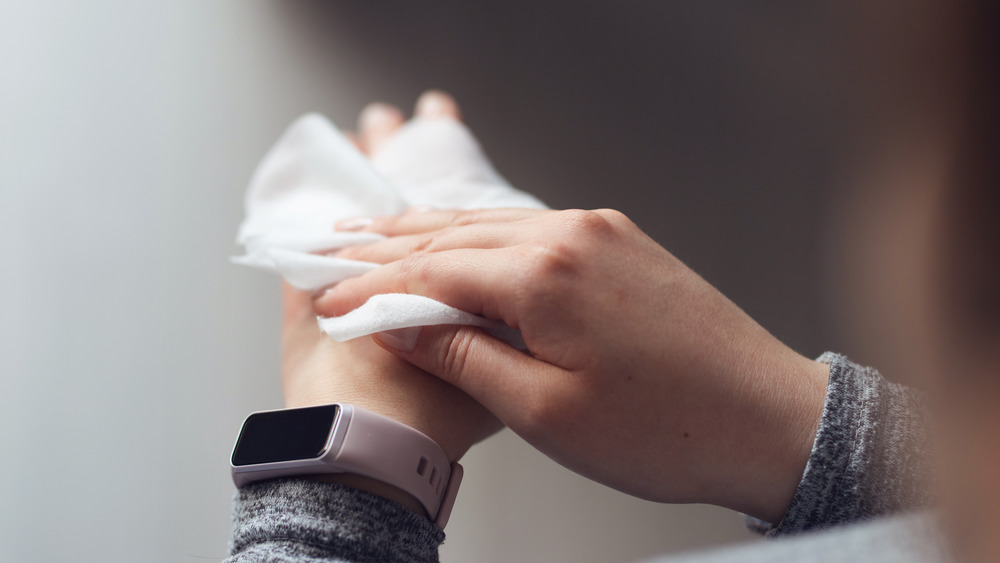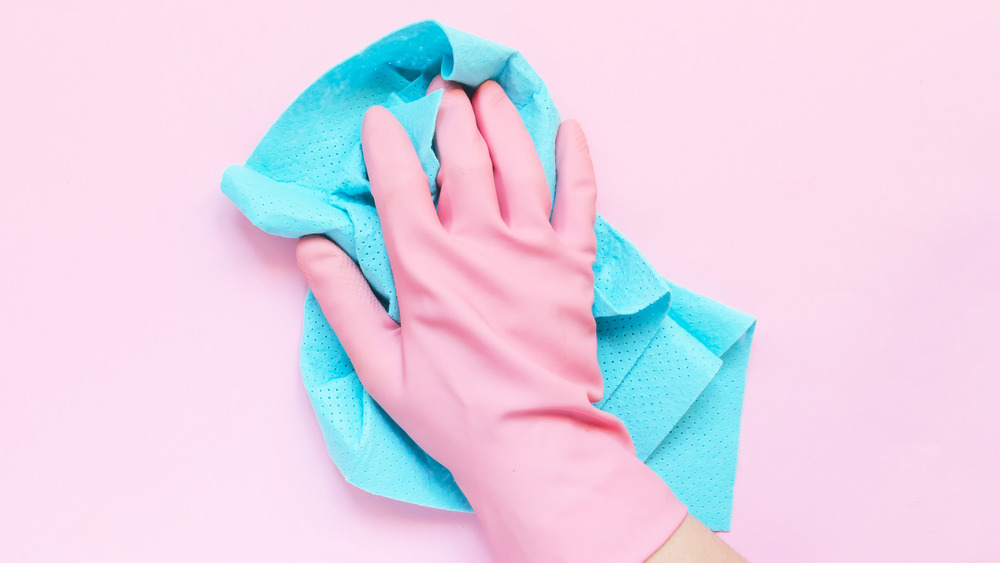Does Using Disinfectant Wipes On Your Hands Work?
These days, it feels like keeping our hands and surfaces free of unwanted germs has been bumped up to numero uno on everyone's list of important things to do. So we can understand why disinfectant wipes are so tempting at the moment. They're convenient, disposable, and make our surfaces shine. But before you decide to use one for the sake of cleaning your hands, there are a few things to know.
If you are a fan of using disinfectant wipes, you're in good company. According to the results of the survey published in a press release from Echo research, most Americans — a sizable 71 percent — said they use some form of wipes. But if you're faced with the option of using hand sanitizer or a disinfectant wipe, reach for the hand sanitizer. Beth Ann Lambert, system infection control supervisor for the Center for Quality and Patient Safety at Ochsner Health in New Orleans explained to LiveStrong the difference in how the two work. "Hand sanitizers work in 20 seconds. You rub it in, your hands dry, they're clean," she says. "Those wipes can have contact times of up to five minutes. Unless your hands are staying wet for that period of time, they're not getting fully disinfected."
Consider what chemicals are found in disinfectant wipes
It's also important to consider what your skin will be exposed to when in contact with the germ-killing chemicals found in disinfectant wipes. "It's a very heterogeneous group of wipes out there, and they're made of different things," Carrie L. Kovarik, MD, associate professor of dermatology at the Hospital of the University of Pennsylvania in Philadelphia shares with LiveStrong, "Some of them have bleach in them, some of them have ammonium chloride — which is what a lot of the Clorox and Lysol products have — and most of them have some percentage of alcohol." There are also disinfecting chemicals named quaternary ammonium compounds, or "quats" that are often found in wipes that can be particularly harmful. According to WVE, quats are skin irritants, can negatively affect your lungs, and have been linked to asthma and reproductive complications.
Lastly, you might have to squint, but it even says so (in tiny print) on the bottles of the popular Lysol brand disinfectant wipes, to wash your hands straight after use, WVE shares. So if you want to protect your overall health and skin from possible irritations, don't just opt for the more skin-friendly options like hand sanitizer, or a mild soap and water. But consider using a protective glove when using a disinfectant wipe on surfaces as well.


